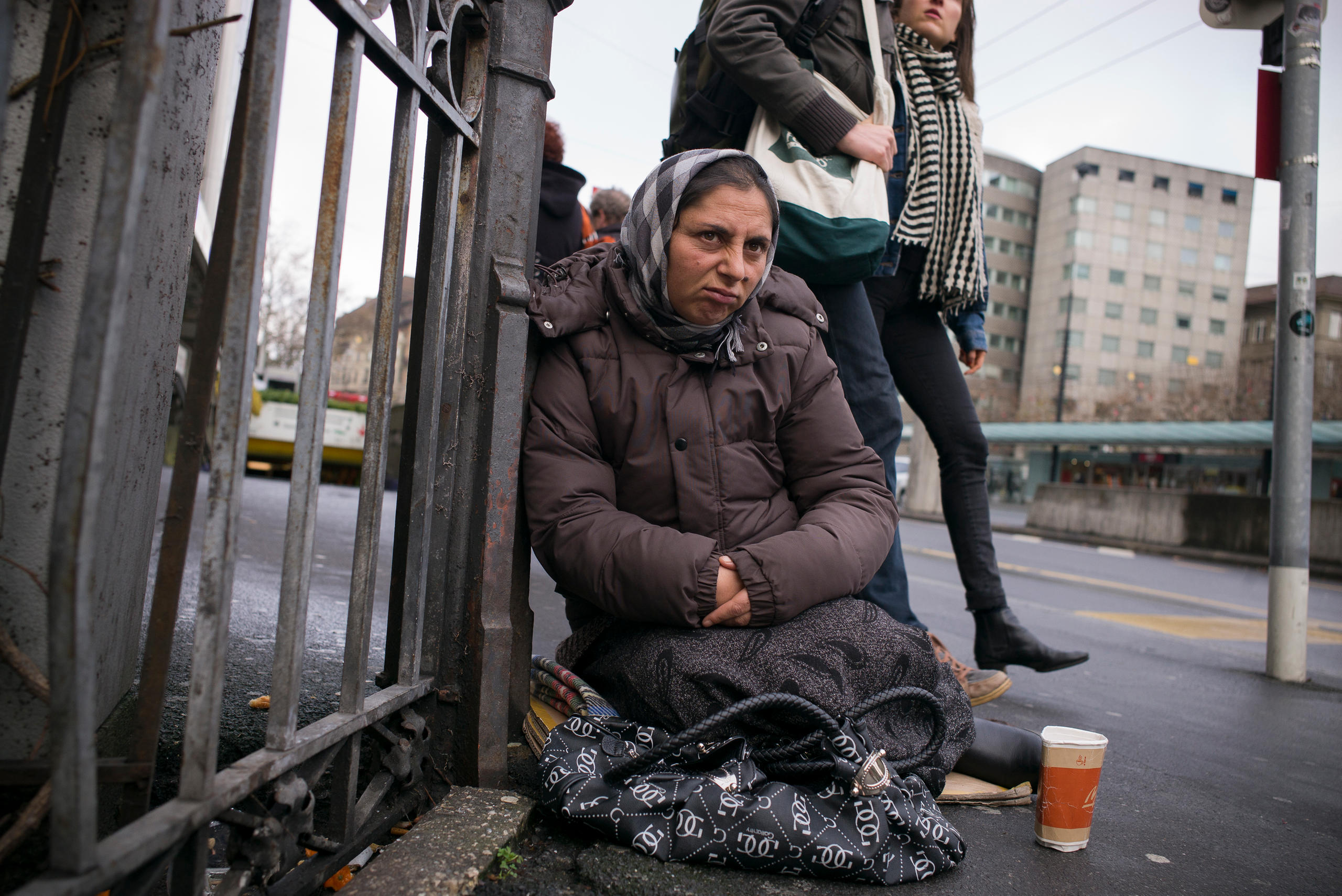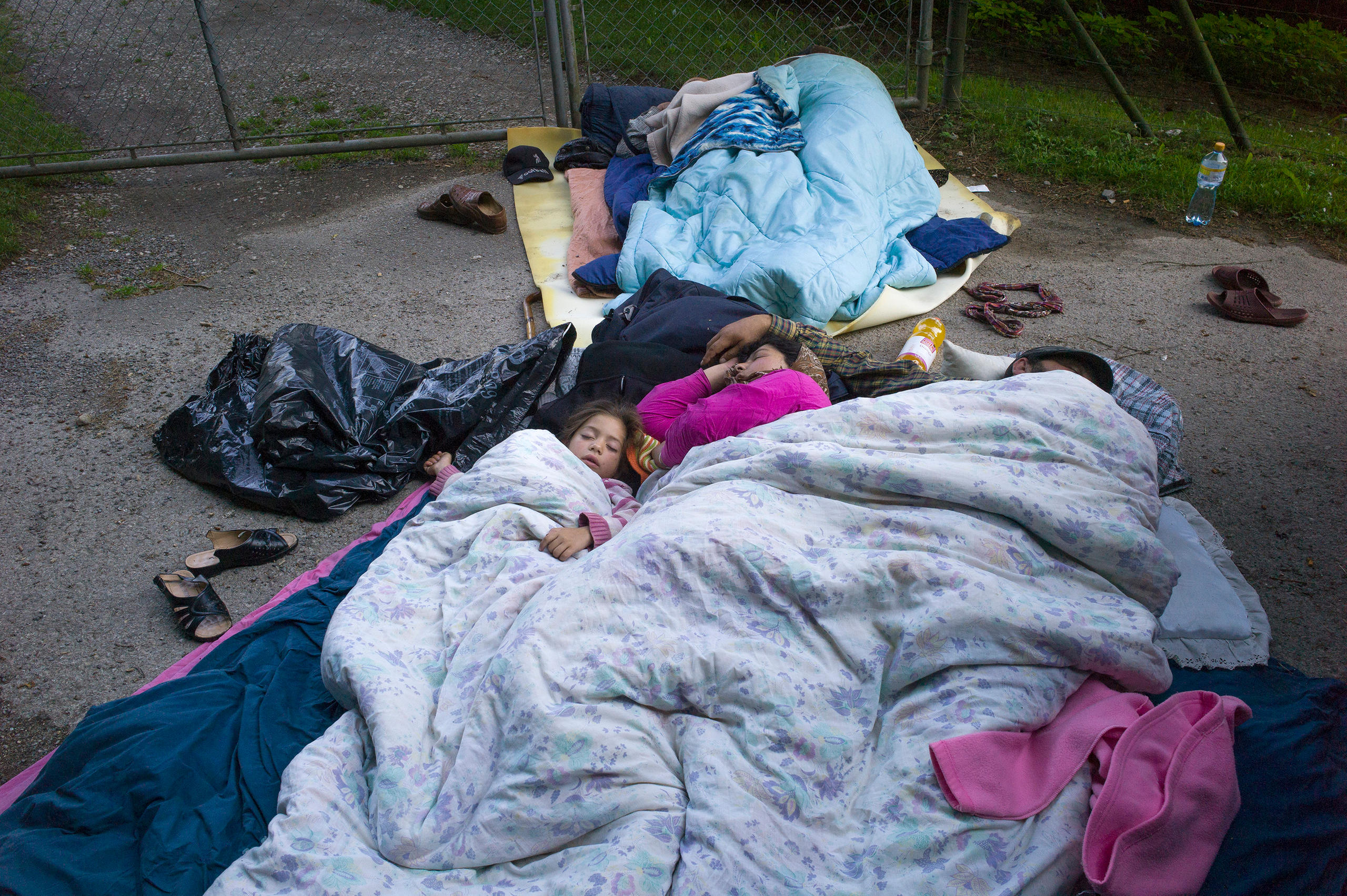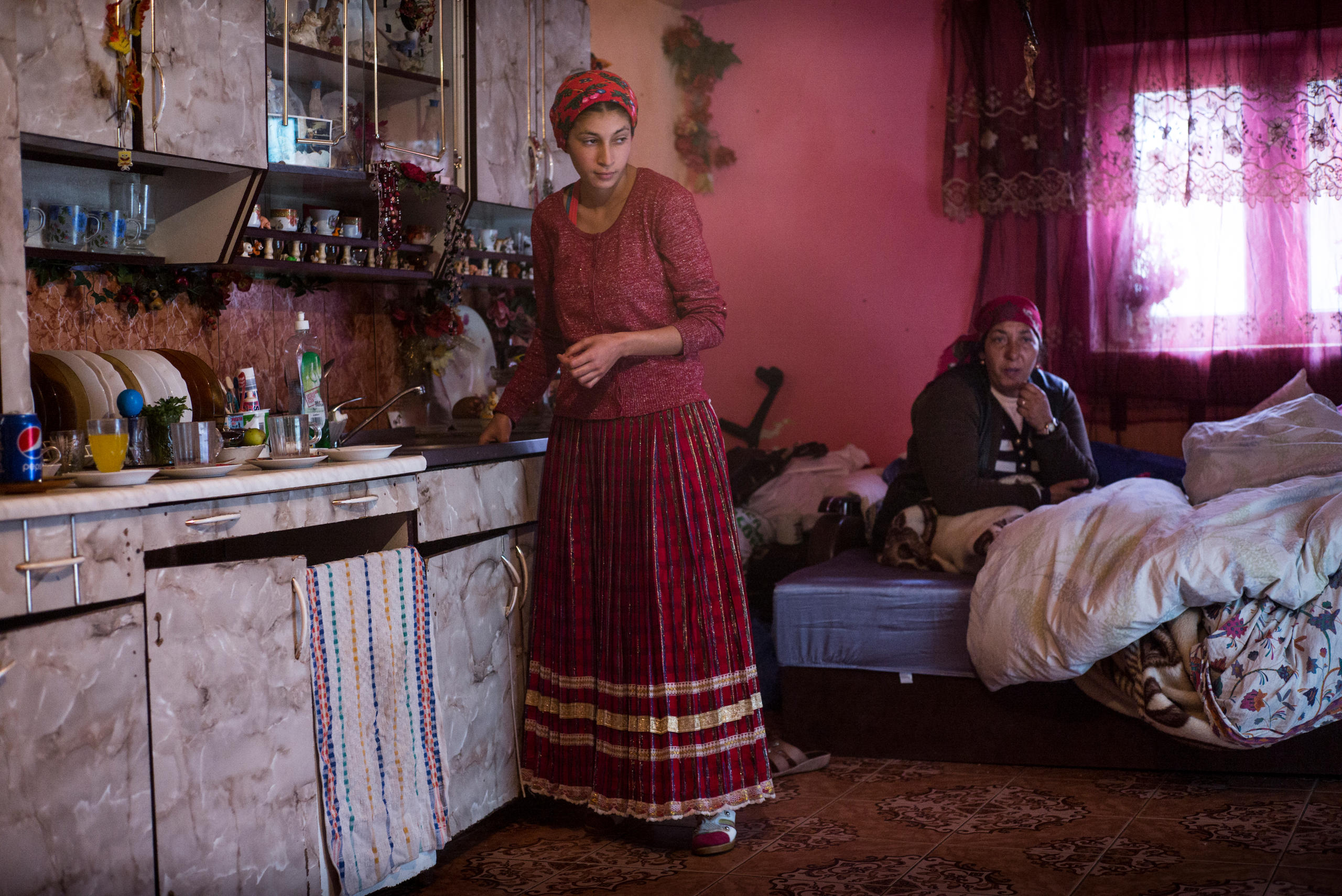Ban on begging hits Switzerland’s most vulnerable

Begging is prohibited in most Swiss cantons. Vaud was one of the last to apply this controversial measure. Eighteen months on, the authorities are satisfied, but those directly concerned are suffering.
Begging was banned throughout the French-speaking canton of Vaud on November 1, 2018. The new law upended the daily lives of hundreds of socially and economically vulnerable people and altered the way police officers work on the ground. The city of Lausanne had already adopted a by-law in 2013, which prohibited begging in a wide range of public places and made it an offence to call out for alms.
“Before, begging was regulated – now the law is clearly repressive,” says Christian Pannatier, head of partnerships and multiculturalism for the Lausanne municipal police. “This has not transformed the work of police officers on the street, but the old rules left greater scope for flexibility and dialogue. Today, the decisions to be made are more clear-cut.”
A total of 15 of Switzerland’s 26 cantons currently prohibit begging throughout their territory: Vaud, Geneva, Neuchâtel, Fribourg, Glarus, Schaffhausen, Zug, Graubünden, Zurich, Thurgau, Basel City, Obwalden, St Gallen, Aargau and Ticino. Some punish begging of any kind, while others only “intrusive” begging.
Certain municipalities have also incorporated the ban in their police regulations, for instance Porrentruy (Jura), Martigny (Valais) and Lyss (Bern).
Other western countries and regions, such as France, Belgium, Germany and the Canadian province of Quebec, are following a similar approach to Switzerland, according to Jean-Pierre Tabin. Many cities or municipalities prohibit begging, though sometimes only in certain places or just during the tourist season.
When police officers come across beggars on their beat, they tell them about the law in place and report the cases to headquarters, which issues the fines.
“The ban has had a big impact on visibility,” says Pannatier. “There are many beggars that the population no longer sees. It has also had a positive effect on shopkeepers: we are called much less often to deal with beggars.”

More
How did Switzerland become Switzerland? The most important chapters in Swiss history up to 1848
Fear of the police
In the run-up to November 1, 2018, the police informed beggars about the provisions of the new law.
“And on the day itself, almost all those who used to sit on the street had vanished. It was quite unexpected,” Pannatier recalls.
People begging for money in Lausanne included the socially marginalised, drug addicts and, above all, many Roma from Romania. Most of them fled overnight.
“They were scared, totally afraid – of the police, of being put in prison,” says Anne-Catherine Reymond, president of Sant’Egidio Switzerland.
For many years, this Christian community has worked with the associations Opre Rrom and Point d’Appui to enable the children of beggars to attend school. But the ban “has had a disastrous effect on all this support work,” says Reymond. She has stayed in contact with some of the families and followed their trajectory: most of them left Switzerland for France or Germany, where they keep having to move on as they are driven away.
“The ban has hit the most vulnerable. It has forced the sickest and the least educated to move on,” says Vera Tchérémissinoff, president of Opre Rrom. “We have pushed people further away and further downwards. Their situation is getting worse, not better. They are living on the brink of survival.”

More
Following the Roma in Lausanne and Romania
Constantly on the move
Begging is less visible in Lausanne today, but it has not disappeared. People are more discreet. They approach passersby directly to ask for a few coins and move about a lot.
In the bustle around the railway station, you can barely make out Mindra and Bogdan. Over a cup of hot tea, the couple describes how their daily life has become even tougher since the ban on begging came in. They originally came to Switzerland to look for work in agriculture; Mindra takes from her bag the CV she gives to potential employers. So far, no one has ever called them. Their level of French and the fact that they can neither read nor write have been major stumbling blocks.
From 2013 to 2018, the couple survived in Lausanne by begging. When the new law came into force, they fled to Grenoble, France. “We ended up in a big shelter with lots of people from other backgrounds. It was not a good place for women,” Mindra recalls. “I feel safer here.”
They returned to Switzerland, where they travel to different cantons each day to beg, to be able to buy food and pay for the Lausanne shelter, which costs them CHF10 ($10.40) a night. Bogdan sometimes sleeps outdoors, even in mid-winter. The couple has also had to leave their dog with a host family, as the shelters no longer accept animals.
“Since the ban it’s been a disaster,” says Mindra. “I do Vevey, Montreux, Sion, Neuchâtel every day to get a bit of money. I change trains a lot so as not to be checked.” Today was particularly difficult. In canton Valais she was reported by passersby, arrested and taken into custody for three hours. She even had to undress to show that she had no cash hidden on her.
“All we’ve had to eat today is a tangerine, and we don’t have enough money for the shelter,” says Mindra. “Such is life.”
Finding a job
Most of the beggars who were living in Vaud have emigrated to other European countries in search of work, but have often had to continue seeking alms in order to survive. For years, Opre Rrom has been trying to help such people find work in Switzerland. Quite a few have managed to get temporary jobs, and three or four have even secured open-ended positions.

“It’s not easy, because most of these people are illiterate, and Switzerland has very high requirements: we require training and certificates,” explains Tchérémissinoff of Opre Rrom. She cites the example of three women who were turned down for a cleaning training course, as they could not read the instructions on the detergents.
“We adapt their CV to highlight their experience and know-how, as these are people who worked in their own countries, often in agriculture,” says Tchérémissinoff. For instance, one young man who used to look after horses found employment at a riding school.
“We should pull together to try and solve this pan-European problem, but that would require determination, and not fearing the next elections,” says Reymond, decrying the authorities’ lack of courage. “We should attack the causes of poverty, not poverty itself.”
Begging now a crime
One year after the new law came into force, the Lausanne government found the outcome had been “very satisfactory”, with the ban having had an immediate and tangible effect.
“If the political aim was to drive beggars away without dealing with the problem, then it has been rather successful,” says Jean-Pierre Tabin, a professor at the University of Applied Sciences and Arts of Western Switzerland in Lausanne. He co-directed a study commissioned in 2010 by the Vaud cantonal authorities to assess whether children were involved in begging in Lausanne. After careful observation, the researchers concluded that this was not the case.
Tabin then continued his research after the introduction of the begging ban: “Since being poor and having to solicit alms has become a crime, and since having nowhere to live and having to sleep rough is a crime, then poverty is being criminalised.”

Outlawing begging has had a whole range of consequences, according to Tabin. A societal question has become one of public order dealt with by the police; the beggars then receive fines that they cannot pay, and after that reminders, legal proceedings and finally jail time. If they are not Swiss, they are considered “criminal aliens” and can be deported.
Courts weigh in
An appeal against the ban on begging was filed in Vaud, but the cantonal court and the Federal Court both confirmed that the law was well-founded, in order to “preserve public order, security and peace” and to “prevent the existence of mafia networks”. A group comprising beggars and well-known personalities has appealed this decision to the European Court of Human Rights.
Research carried out in Switzerland and other European countries has shown that people who beg do not belong to any mafia-type network. “It doesn’t exist – it’s a fantasy,” says Tabin. “What does exist, though, is family solidarity.”
However, the political and judicial authorities cite the existence of networks and the exploitation of children to justify the ban on begging, despite studies proving the contrary.
“It is a discourse that has no foundation and is clearly based on stereotyping,” notes Tabin. “But you can’t change stereotypes through reasoning, because they are not based on rational thinking but on belief.”
Translated from French by Julia Bassam

In compliance with the JTI standards
More: SWI swissinfo.ch certified by the Journalism Trust Initiative




You can find an overview of ongoing debates with our journalists here. Please join us!
If you want to start a conversation about a topic raised in this article or want to report factual errors, email us at english@swissinfo.ch.